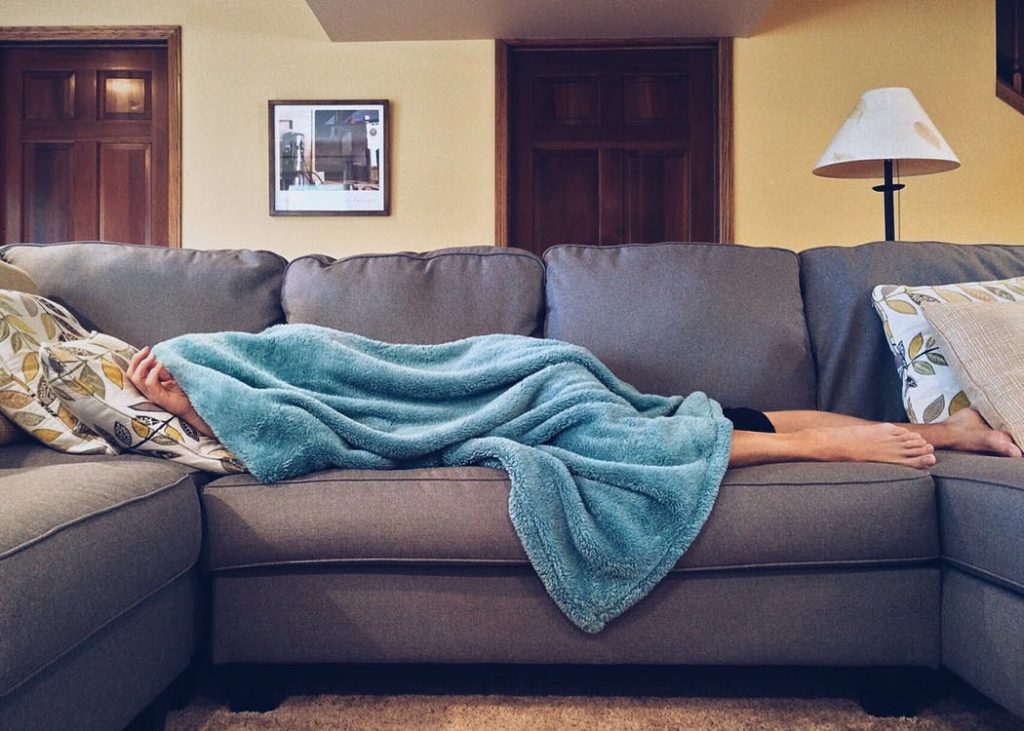
Sticking to a strict bedtime routine can be difficult. Although most of us go to bed and wake up at the same time for responsibilities such as work and school, our sleeping schedule can sometimes be shaken up by the weekend, late Friday nights or a number of other factors. However, it’s important to get a good night’s sleep and stick to a regular routine as best as possible.
Sleep plays a major role in your physical and mental health. While you sleep, your body automatically repairs itself and essentially recharges your body. If you’ve ever been 24 hours or more without sleep, then you’ll notice your mind blurring a little, your body feels sluggish and you have trouble focusing. Regular sleep is important to maintain healthy brain functions, and if you’re depriving yourself of sleep then you’re going to have a rough time at work the next morning (if you can even wake up on time!).
However, even if you do get a regular 7 or more hours of sleep per day, it doesn’t mean you’re in the green. There’s a huge difference between 7 hours of good sleep and 7 hours of horrible sleep where you toss and turn and wake up every few hours. So to give you a hand, here are a couple of ways to build up a regular sleeping pattern and get plenty of good rest every night.

Stop dozing off and napping
If you find yourself dozing off or napping during the day, then it’s a sign that you’re not getting enough sleep at night. The amount of sleep someone needs changes depending on their activity and physical health, so it’s important to try different things in order to remain alert and awake during the day. While taking a nap isn’t such a bad thing, taking regular naps at the same time each day means that you’re simply not getting enough sleep at night. Instead of dozing off for an hour each day, just sleep an extra hour by going to bed earlier. If you feel like you simply don’t have enough hours in a day to get all your tasks done and you need a nap, then consider slowing down your life and take things one task at a time instead of stressing out your mind and body.
Remove electronics from the bedroom
A lot of people have at least some form of electronic device in the bedroom. It could be a laptop, a computer or just a television. If you sit in bed watching TV or responding to late-night Facebook messages on your phone, then make it a habit to stop doing this. The bedroom should be for sleeping. Take your TV out of the room and place it in your study or your living room—the place you should be watching it. If you have trouble keeping your phone out of the bed, then charge it in your living room or study instead of your bedroom. When you jump into bed, you want to fall asleep and get your rest, not end up staying up late playing around on electronics or watching late night television.

Replace your bedding
Comfort is important in the bedroom, which is why you should be replacing your mattress if you wake up with pains over your body, and switching out your linen for King sheet sets instead. Luxury matters when you’re sleeping. You want to be able to go to bed and wake up feeling like royalty, and that’s where your bedding comes in handy. Get plenty of pillows to wrap yourself in comfort and keep your neck from aching when you wake up and get a comfortable duvet to cover yourself in.
Adjust your pillow to the perfect height
A lot of people sleep with their pillow adjusted incorrectly. Pillows should ideally support both your neck and back. Since your head is going to be resting on a pillow for about a third of your life (or more!) you should make a conscious effort to pick the right pillow and adjust it correctly. The type and size of pillow you get will heavily depend on how you sleep. If you sleep on your side, then your pillow needs to be high enough to fill the area between your shoulder and cheek. You can do this by stacking several pillows or getting a thick one. If you sleep on your back, your pillow needs to be a little lower to support your neck. If you sleep on your stomach, then you should really try to readjust your sleeping habits so you sleep on your side or back instead. Sleeping on your stomach bends your neck, causing you to wake up with aches and pains.
Unwind before bed

Avoid too much caffeine
Caffeine is usually something we consume in the morning to give us a little boost of energy to start the day. However, we’ve all been told not to drink caffeine too late in the day because it disrupts our sleep. In fact, consuming any bit of caffeine 6 hours before you go to bed could lower your sleep quality and make you feel groggy when you wake up. Some people are adamant about consuming caffeine throughout the day and believe that they are getting enough sleep even if they have a cup of coffee before bed. Sadly, the effects are hard to see on the surface, but your sleep quality is far better without consuming caffeine at all. If you have to drink caffeine to stay alert, then try to limit it to mornings and at the latest, drinking one more cup during lunchtime but not more. Avoid energy drinks as much as possible (not only due to caffeine but also the sugar content!) and if you’re having trouble cutting down on drinks like coffee, try to consume less and less as the day progresses.
Don’t use your bed to lounge
Lastly, we need to talk about lounging on the bed. Despite what many people will tell you, lounging on the bed is never a good idea. If you’re on the bed while you read, watch television or work on your laptop, you need to take your electronics and entertainment out of the bedroom and do them in the proper rooms. Your bedroom is a place for sleeping and your brain isn’t going to function as well as it could in the designated rooms. For instance, if you work on your laptop in bed instead of a study, then you’re more likely to associate the comfort with falling asleep and you won’t be nearly as productive as you could be working at a desk. You’re more likely to put your work on hold and fall asleep for a little, only to realise that several hours have passed and you still haven’t finished your assignments. If you need to read, sit in an armchair or sofa. If you want to watch TV, do it in your living room. If you need to work, work at a desk.
Final Words
To summarize, getting a good night’s sleep is important not just for your physical health, but also to maintain good brain function so that you can stay alert throughout the day. If you deprive yourself of sleep, you’ll encounter a myriad of issues that could ultimately lead to death if you’re being reckless. Get a good night’s sleep by following these simple steps and you’ll find that your health is better, your brain is snappier, and you’re more likely to be productive throughout the day.


